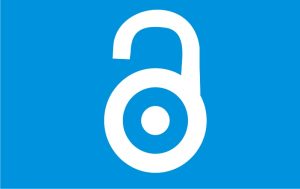Following a series of meeting organized at the instance of Professor V. Diejomaoh, a former Director-General of the Nigerian Institute of Social and Economic Research (NISER), Ibadan, the Social Science Academy of Nigeria, formally called the Social Science Council of Nigeria was inaugurated in the premises of the institute on December 23, 1983. The organization, which began as a network of institutions, is formally registered under the laws of the Federal Republic of Nigeria as a non-governmental and not-for-profit research institution with a mandate to harness and develop the capacity of Nigeria Social Scientists as well as promote the advancement of social science knowledge
Annals of the Social Science Academy of Nigeria, (ISSN 177-8175) the official organ of the Social Science Academy of Nigeria, provides a forum for exchange and dissemination of ideas. The Journal, established in 1988/89, publishes original, unpublished and scholarly papers in the social sciences and related disciplines.
Contributions are invited from scholars and specialists in social science and related disciplines. They are considered for publication on the understanding that they have not already been published.

GOAL
The goals of the Academy are to:
- Promote the advancement of the social science disciplines with particular emphasis on the encouragement of innovation and indigenization of social science theory and application, as well as contribution to knowledge in general and to the social sciences in particular
- Encourage inter-disciplinary and multi-disciplinary approaches to the study of social problems in Nigeria;
- Appraise on a continuing basis and advise on the adequacy of the curricula at all levels of education, with emphasis on improving the quality of education and training in the social sciences;
Click HERE to download the full goal of the academy
 Membership
Membership
The Academy is the umbrella organisation for all social (and management) science faculties, research institutions and learned societies in Nigeria. Membership is open to institutions and individuals.
Individuals must be in the professorial cadre (Associate Professor/Reader/Professor). Individuals so registered shall freely use the title Member of the Social Science Academy of Nigeria (MSSAN) after their surnames.
Fellows of the Academy are elected from members who have continuously associated with the SSAN for not less than 10 years, provided they are deemed to have made very significant intellectual and other contributions to the Academy and society at large. Nominations for the election of Fellows shall be forwarded by the Executive Committee to the Board of Trustees (BoT) for ratification. Fellows shall freely use the title Fellow of the Social Science Academy of Nigeria (FSSAN) after their names.
On recommendation of the Board of Trustees (BoT), non-members of SSAN who have made outstanding contributions to the Academy and society at large may be conferred with title of Honorary Fellow of the Social Science Academy of Nigeria. Accordingly, Honorary Fellows shall freely use the title (FSSAN) after their names. Nominations from the BoT shall be ratified at the General Assembly.
The fellows of the Academy are elected from the rank of full professor in the social science with not less than ten years standing. Fellows freely use the title: Fellow of the Social Science Academy of Nigeria (FSSAN).
 Administration of the Academy
Administration of the Academy
The structure of the academy is as follows:
- The Board of Trustees
- The General Assembly
- Executive Committee
- The Secretariat
As many Standing and Ad-Hoc Committees may be established by the Executive Committee to study and deal with specific issues.
Click HERE to download the history of our academy executive
In furtherance of its mandate, the Academy organizes the following activities:
- Annual Lectures
- The Annual General Assembly
- Programmes
To get more information on our activities, kindly click HERE to download

This work is licensed under a Creative Commons Attribution-NonCommercial 4.0 International License.


